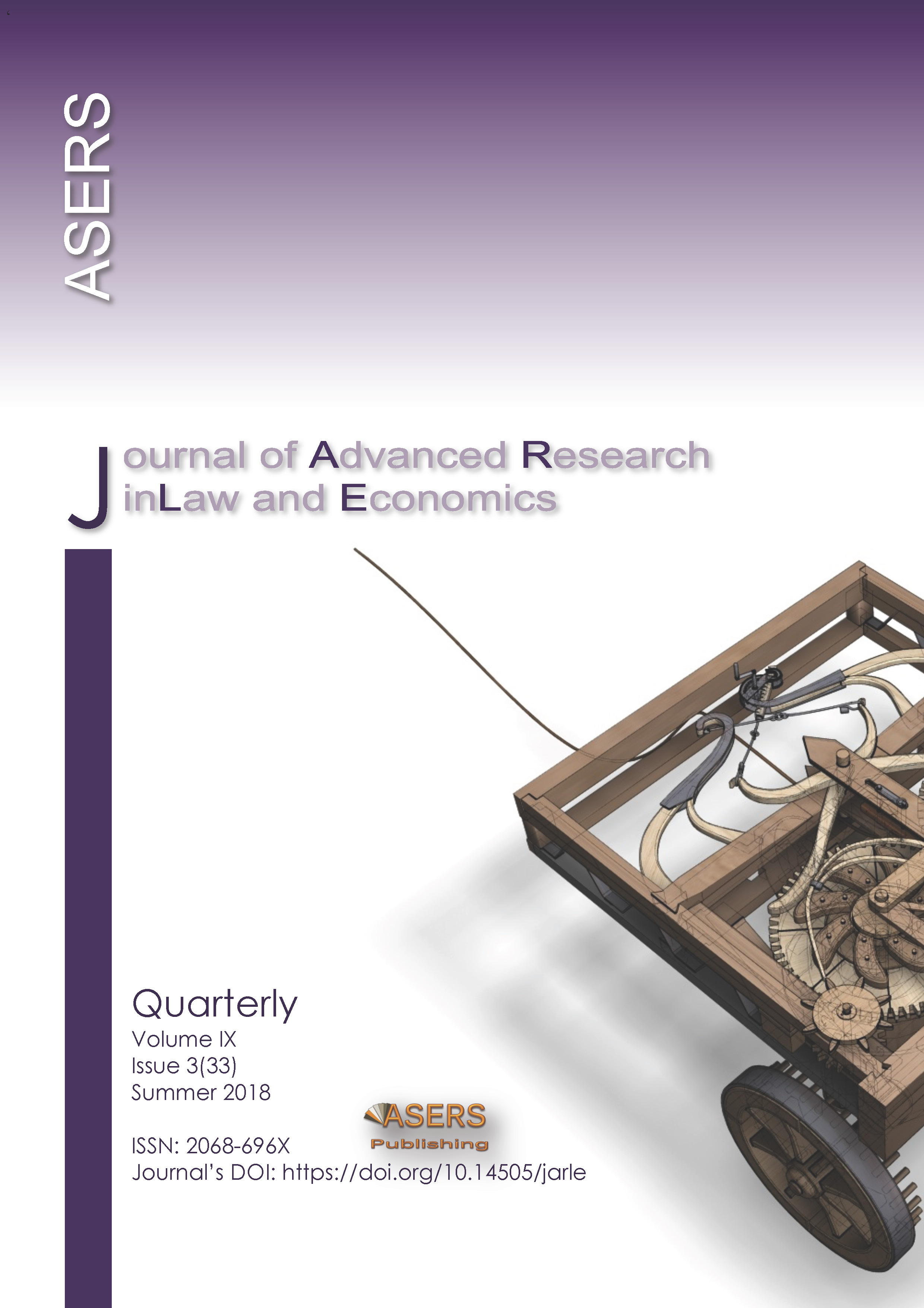The ‘Ratio Legis’ of Article 177 of the Russian Criminal Code
The ‘Ratio Legis’ of Article 177 of the Russian Criminal Code
Author(s): Lilija M. Allanina, Elvira G. YUZIKHANOVA, Anastasia Yu. KRETOVA, Igor Vladimirovich IZUYMOV, Nailja R. NASYROVASubject(s): Law, Constitution, Jurisprudence, Criminal Law
Published by: ASERS Publishing
Keywords: deliberate evasion; accounts payable; organization's manager; criminal liability; creditor; debtor; conscientiousnesS;
Summary/Abstract: In the article the authors examine intersystem relations and problems of deliberate evasion of the repayment of debts of a large size, or from the payment for securities, after the entry into legal force of an appropriate court judgment. The author pay attention to the construction of the crime, actus reus and its characteristics and to the main categories: accounts payable, organization, organization's manager and malignance. The analysis of judicial practice and the theory is carried out too.The phrase ‘accounts payable’ has some blurry boundaries, and as a result, it causes considerable difficulties in the qualification of the act. It is concluded that that the criminological characteristics of accounts payable are much narrower in comparison with the generally accepted in the civil doctrine interpretation of an obligation. A similar situation is with the treatment of the notion ‘organization's manager’. The specific of the legal status of the manager is in the civil and employment law relationships, that indicates its complex nature.In this regard, at least two elements of the corpus delicti provided by Article 177 of the Criminal Code of the Russian Federation relating to the object and to the subject of the crime contain private-law characteristics. These characteristics have legal content and meanings which remain controversial, for theoretical and practical reasons. The civilized category ‘conscientiousness’ is the cornerstone of the concept ‘malignance’ in the civil law. The category ‘conscientiousness’ or ‘good conscience’ (‘bona fides’) is, in turn, of an evaluative nature and has the highest form of abstraction. In the opinion of the authors, the ‘ratio legis’ of the criminal structure of Article 177 of the Criminal Code, hidden behind evaluative categories, should be reflected in the real possibility to enforce the judicial act. The disposition of the norm implies that the implementation of final rulings should be taken into account. Therefore, malignance in the behavior of the debtor cannot be judged without taking into account the entire procedure to be followed in enforcement proceedings.
Journal: Journal of Advanced Research in Law and Economics (JARLE)
- Issue Year: IX/2018
- Issue No: 33
- Page Range: 824-833
- Page Count: 10
- Language: English
- Content File-PDF

